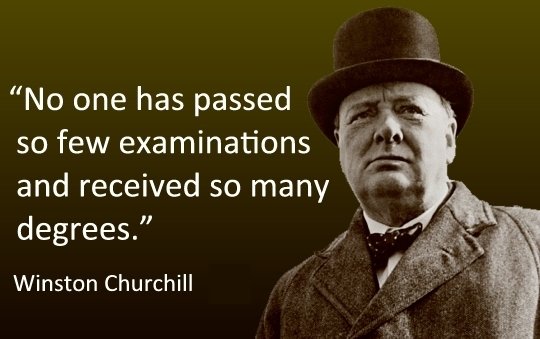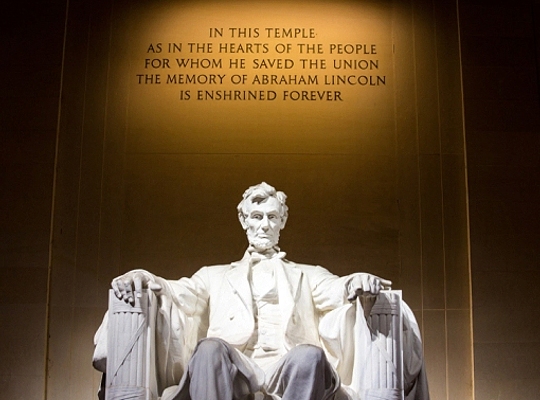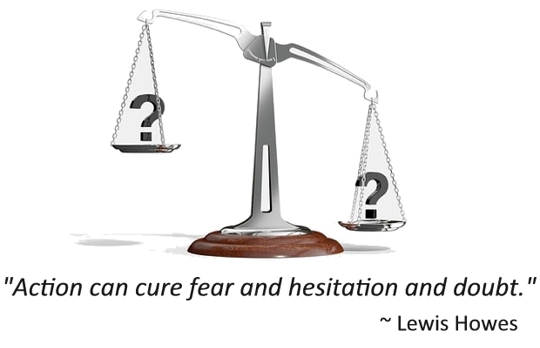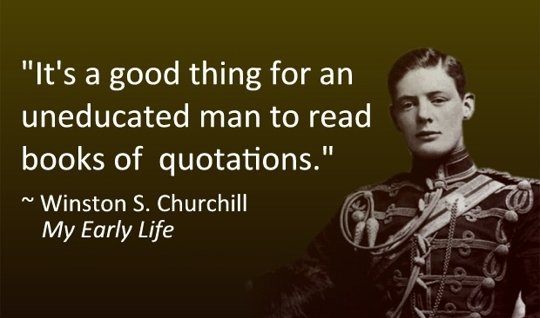The quotable of quotes
Short inspirational quotes are easy to remember, cut to the quick and are difficult to refute. It’s undeniable that inspirational quotes and speeches have buoyed armies and nations and affected the outcomes of battles and wars.
Well selected words have the power to call to action, inspire, embolden, persuade, interrupt, disrupt and, yes, close sales.
Consider Winston Churchill. He was considered a dullard at school. Yet he extended his love of language into a skill set so powerful that it fortified Britain’s resolve to fight on when others chose to surrender. His wartime speeches imbued the British people with a sense of pride, purpose and dogged determination – a winning edge.

Edward R. Murrow said the following of Churchill:
“He mobilized the English language and sent it into battle to steady his fellow countrymen and hearten those Europeans upon whom the long dark night of tyranny had descended.”
However, war was Churchill’s niche, and as much as the British people loved him for his wartime leadership, he was defeated in a general election held shortly after victory was assured. The opposition ran on a platform of social welfare reforms, whereas Churchill reminded the electorate that the country was up to its eyeballs in debt.
It is the view of many, including this humble foreigner, that Abraham Lincoln was America’s greatest president. I notice in surveys that he always ranks at or near the top.
He had a remarkable gift of language, and could cut to the core like few others. What sets Lincoln apart from others was his ability to distil the essence of complex and conflated issues so that they became understandable to men and women of average education. This was a man we should all attempt to emulate.
Lincoln’s Gettysburg address is burned into the minds of free men and women everywhere. Did you know that in this, his most famous address, he required less than a few minutes to honour the fallen, explain the need for such dreadful sacrifice and remind those present of the values for which so many had fought and died – not in bullet points but in extraordinary language we remember to this day?
Edward Everett, according to contemporary reports, was the man who introduced Lincoln at Gettysburg. He delivered a tedious two hour oration – apparently fifteen minutes of fame was not enough for him. Very few remember Everett. Everyone remembers Lincoln.

On taking action
Gen. George S. Patten said: “A good plan, violently executed now, is better than a perfect plan next week.” He believed that an action plan must be sound if not perfect. Make your plans as best you can and then execute them immediately with deliberate intent and total commitment. The same is true for marketing strategies, niche selection and publishing that nerve-racking first post.
By the way, Patten is often misquoted about this principle. It’s often the way. Most people believe Patten said “A good plan today is better than a perfect plan tomorrow”. Motivational speakers prefer to use this variation as a call to action. It better fits their agenda.

Real estate and affiliate marketing “gurus” like to misquote NFL great, Jerry Rice who said: “Today I will do what others won't, so tomorrow I can accomplish what others can't.” The more popular variation goes something like this: “I’m prepared to live for a year like others won’t, so that I can live the rest of my life like others can’t.”
Personally, I wouldn’t use this particular quote or any of its variations. It’s been overused and has been associated with too many scams.
Perhaps, one day, I’ll write another blog on fake quotes by famous people. There are so many. But, I digress. Please forgive me.
Studying quotes – from respected epigrammatists – improves our capacity to craft brief, gripping sentences designed to intrigue readers and call them to action. After all, don’t we remember these quotes for a reason?
Churchill swore by this principle. He went to extraordinary lengths to memorize quotes and tailor his own epigrams. He rehearsed his speeches (and quotes) in careful detail — usually in front of a mirror, pausing here and there for effect – and, as his career progressed, Churchill’s wit and sage quotes began to flow more spontaneously. This was due, in large measure, to years of preparation and the enormous collection of practiced verses hoarded within Churchill’s magpie mind, ready to be adjusted and tweaked as the occasion demanded.
Yet, it all began with a little book of quotes. Churchill probably purchased his copy of Bartlett’s Familiar Quotations when he joined the army. He studied it intently and felt compelled to read the authors and “look for more”.

Was it that little book of quotes that set Churchill upon the path to greatness? I’ll leave you to reflect on that.
Join FREE & Launch Your Business!
Exclusive Bonus - Offer Ends at Midnight Today
00
Hours
:
00
Minutes
:
00
Seconds
2,000 AI Credits Worth $10 USD
Build a Logo + Website That Attracts Customers
400 Credits
Discover Hot Niches with AI Market Research
100 Credits
Create SEO Content That Ranks & Converts
800 Credits
Find Affiliate Offers Up to $500/Sale
10 Credits
Access a Community of 2.9M+ Members
Recent Comments
3
Join FREE & Launch Your Business!
Exclusive Bonus - Offer Ends at Midnight Today
00
Hours
:
00
Minutes
:
00
Seconds
2,000 AI Credits Worth $10 USD
Build a Logo + Website That Attracts Customers
400 Credits
Discover Hot Niches with AI Market Research
100 Credits
Create SEO Content That Ranks & Converts
800 Credits
Find Affiliate Offers Up to $500/Sale
10 Credits
Access a Community of 2.9M+ Members
Marvellous writing, bravo!
Thanks, Ivy. You very kind.
No, no, you’re very talented.